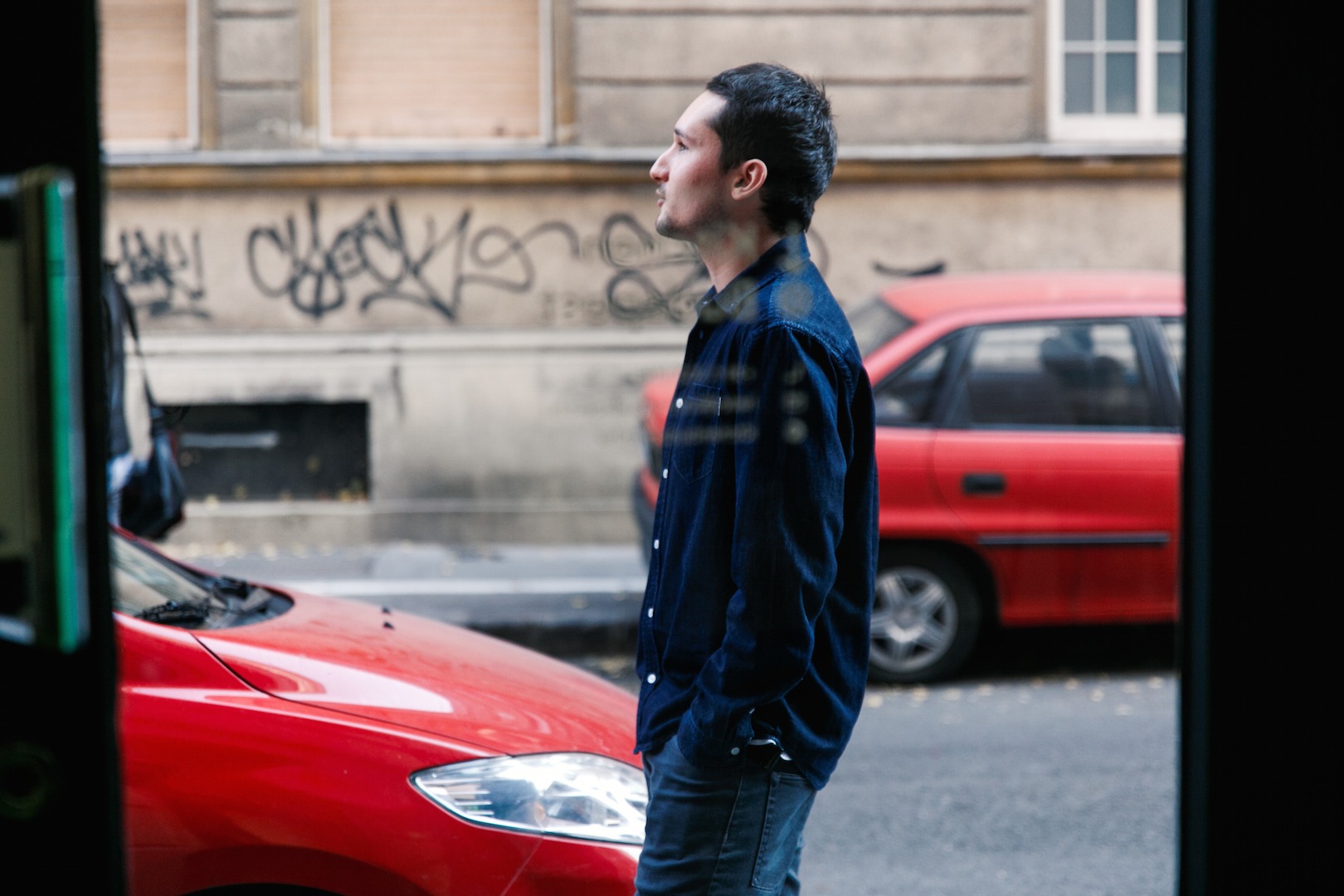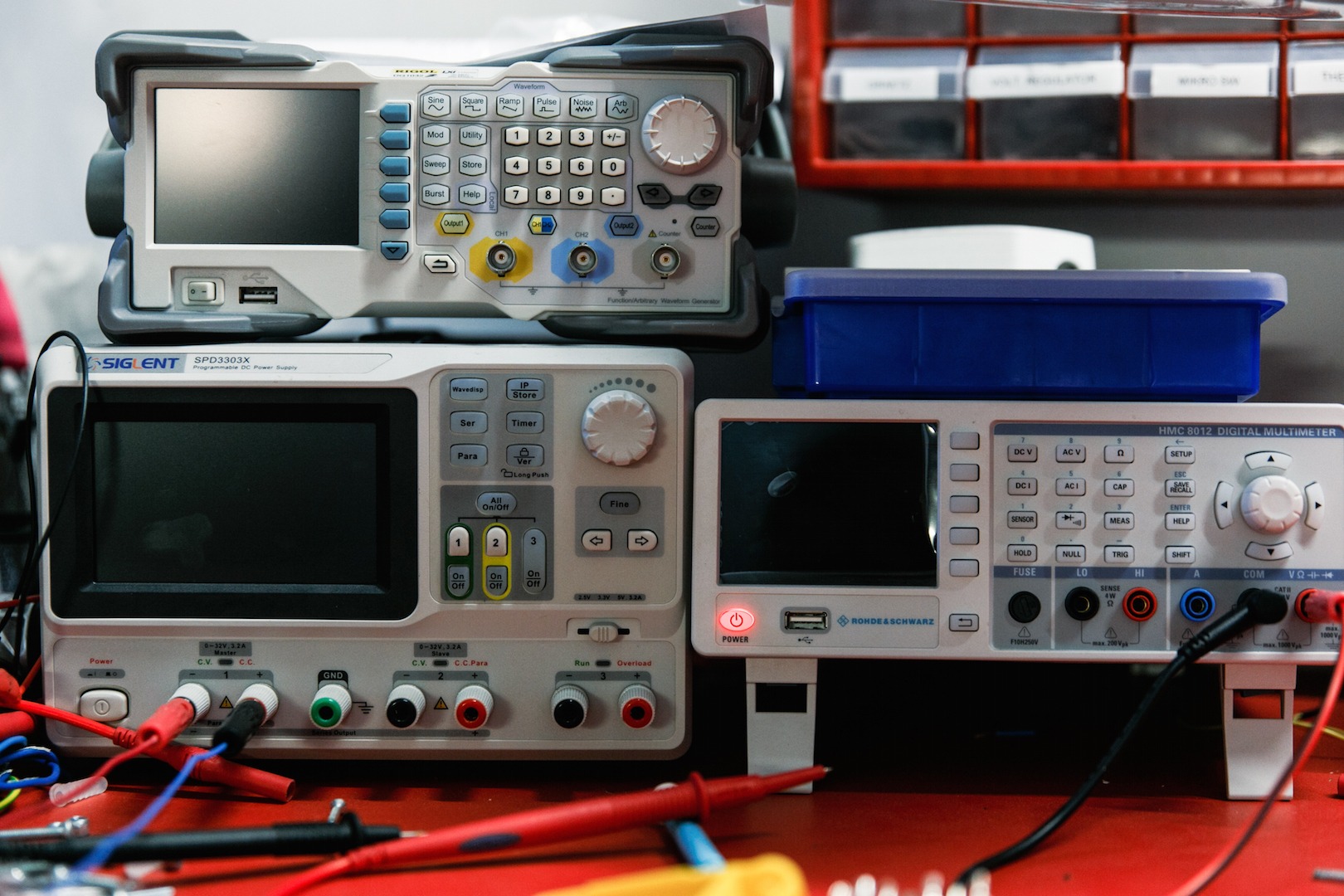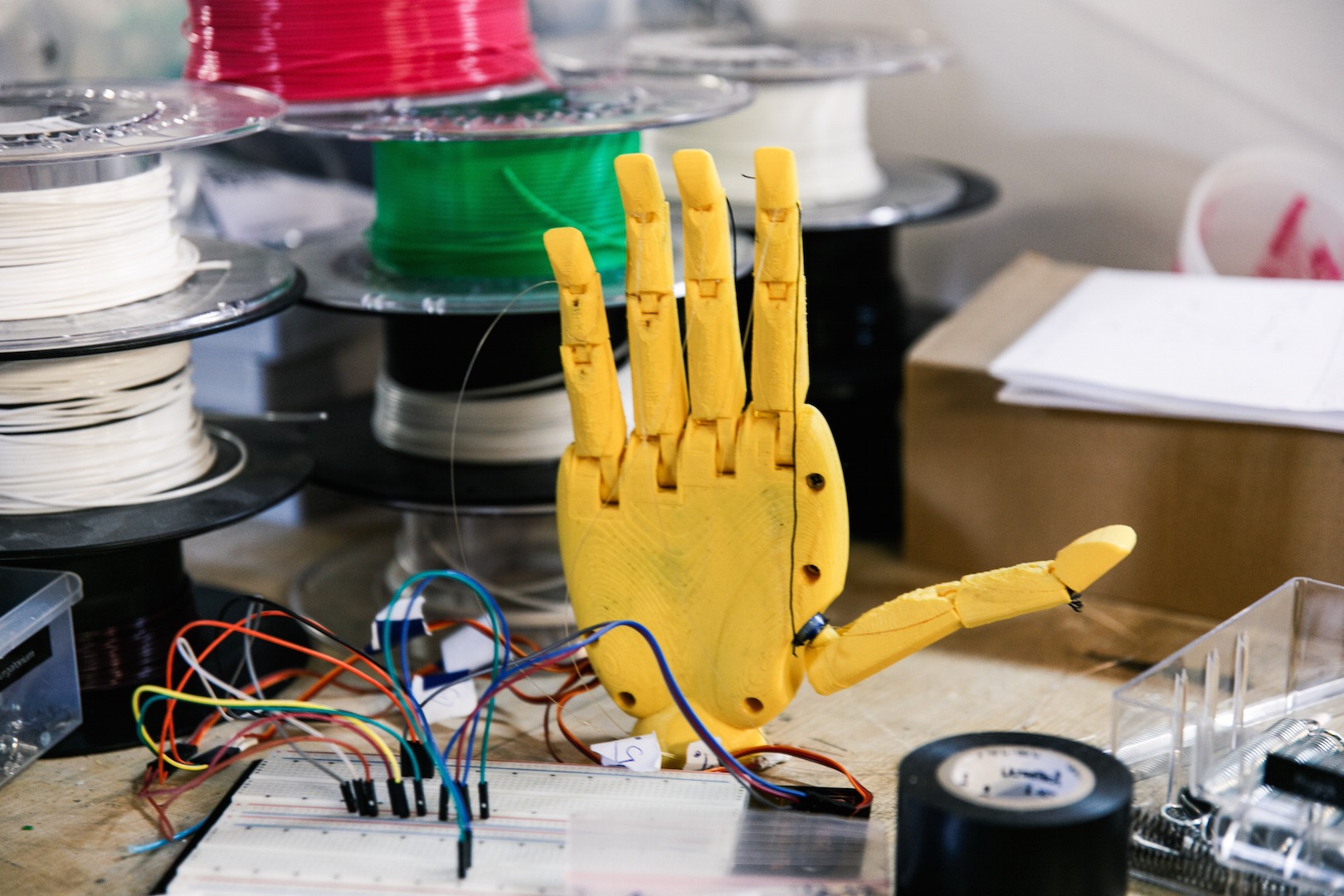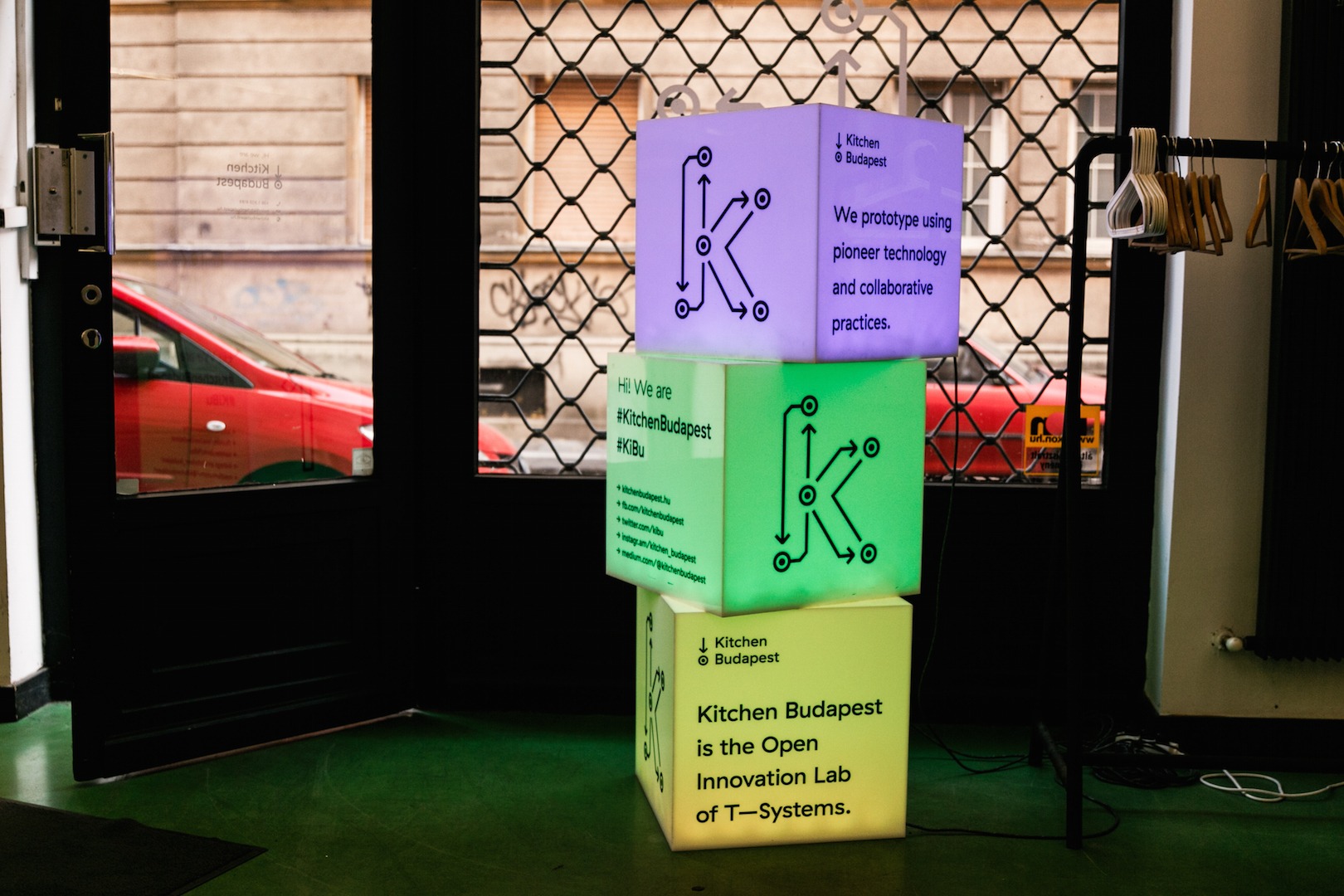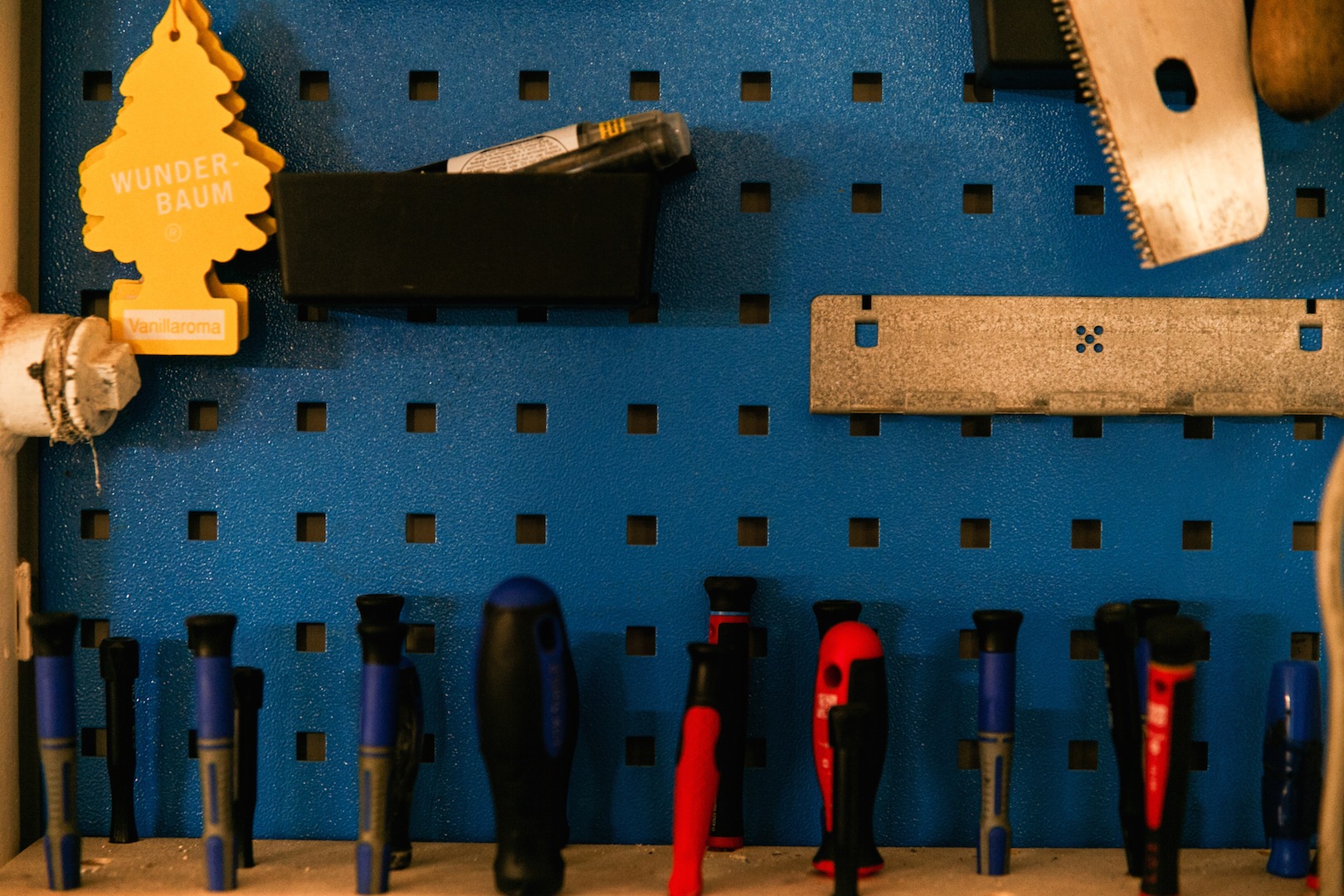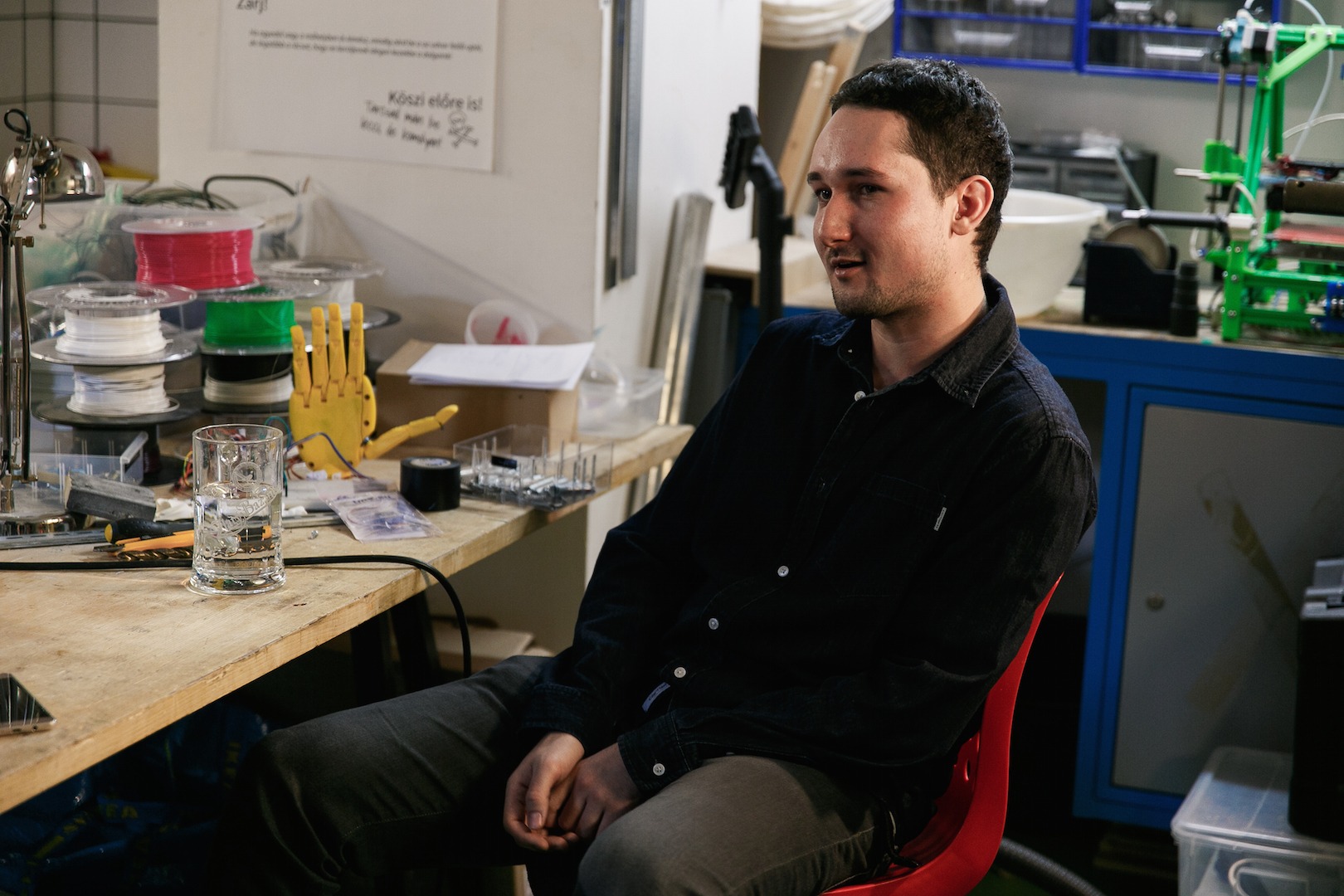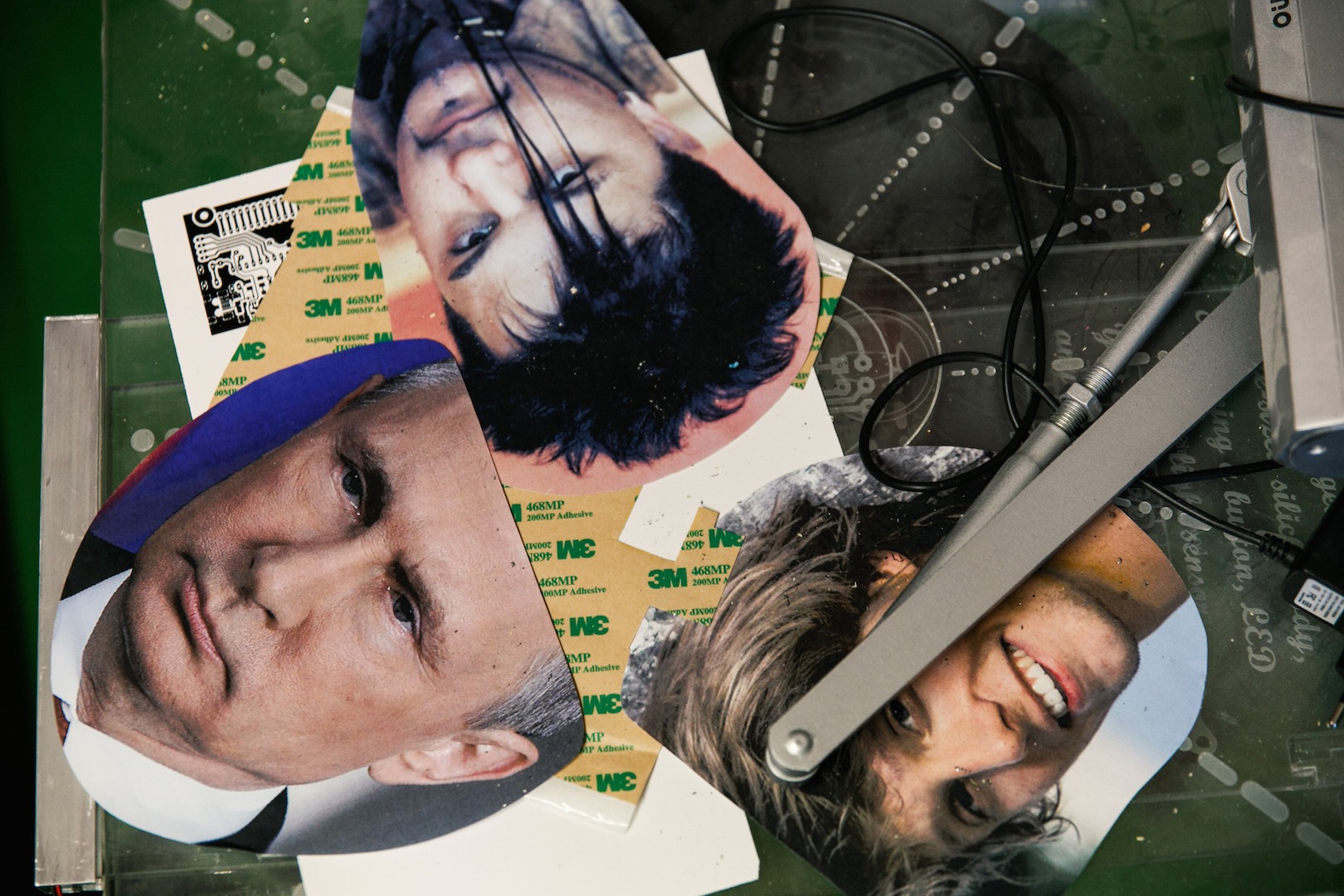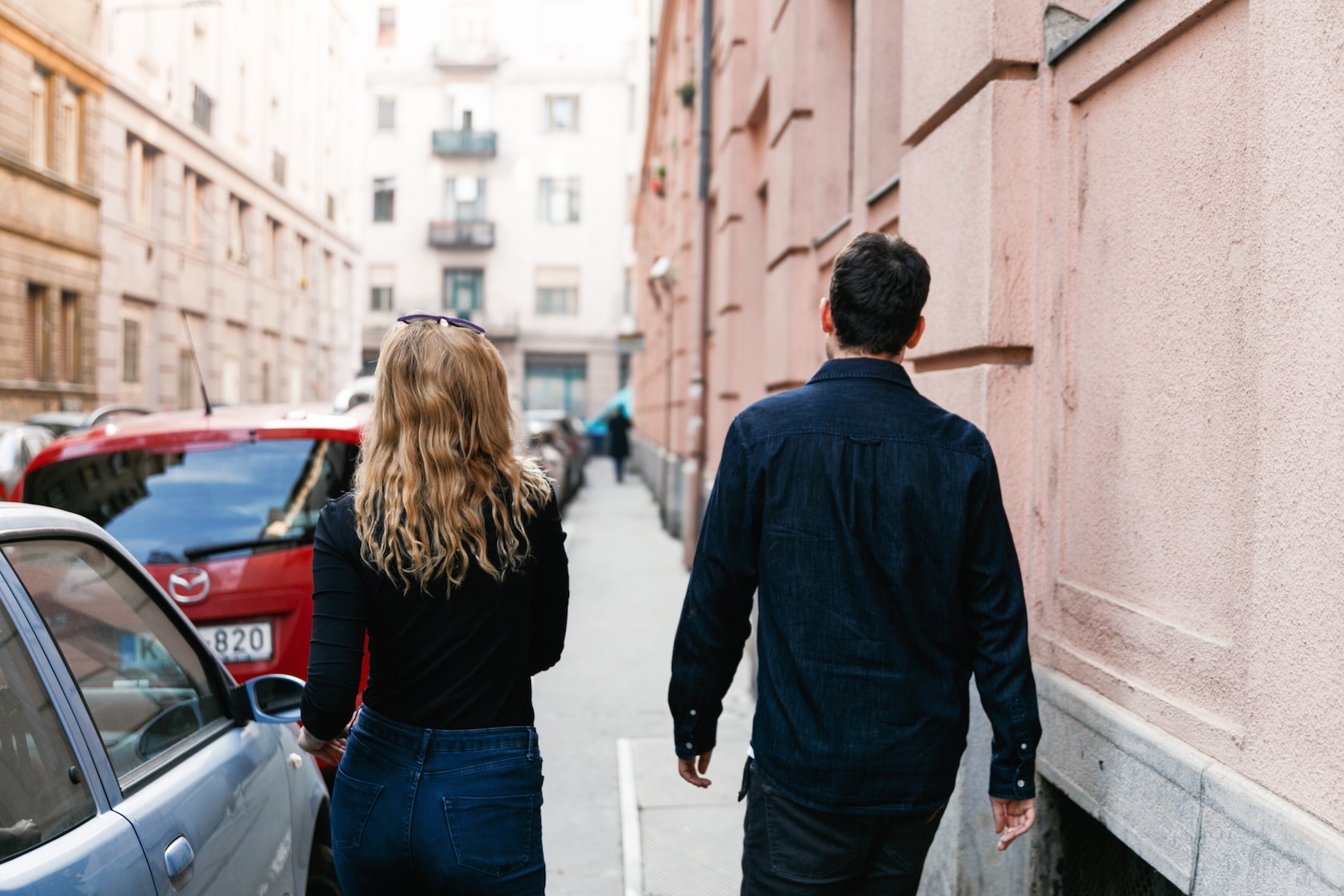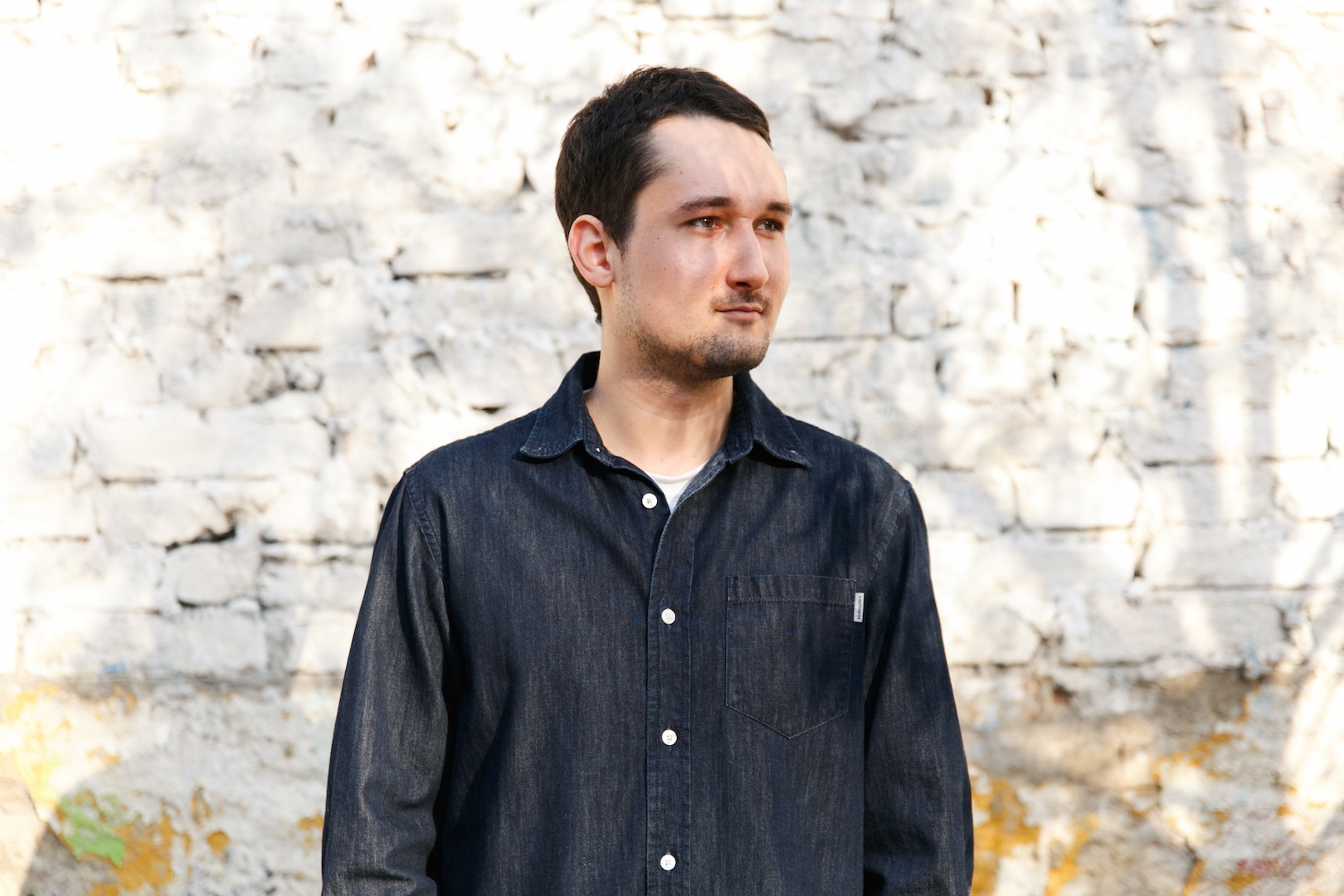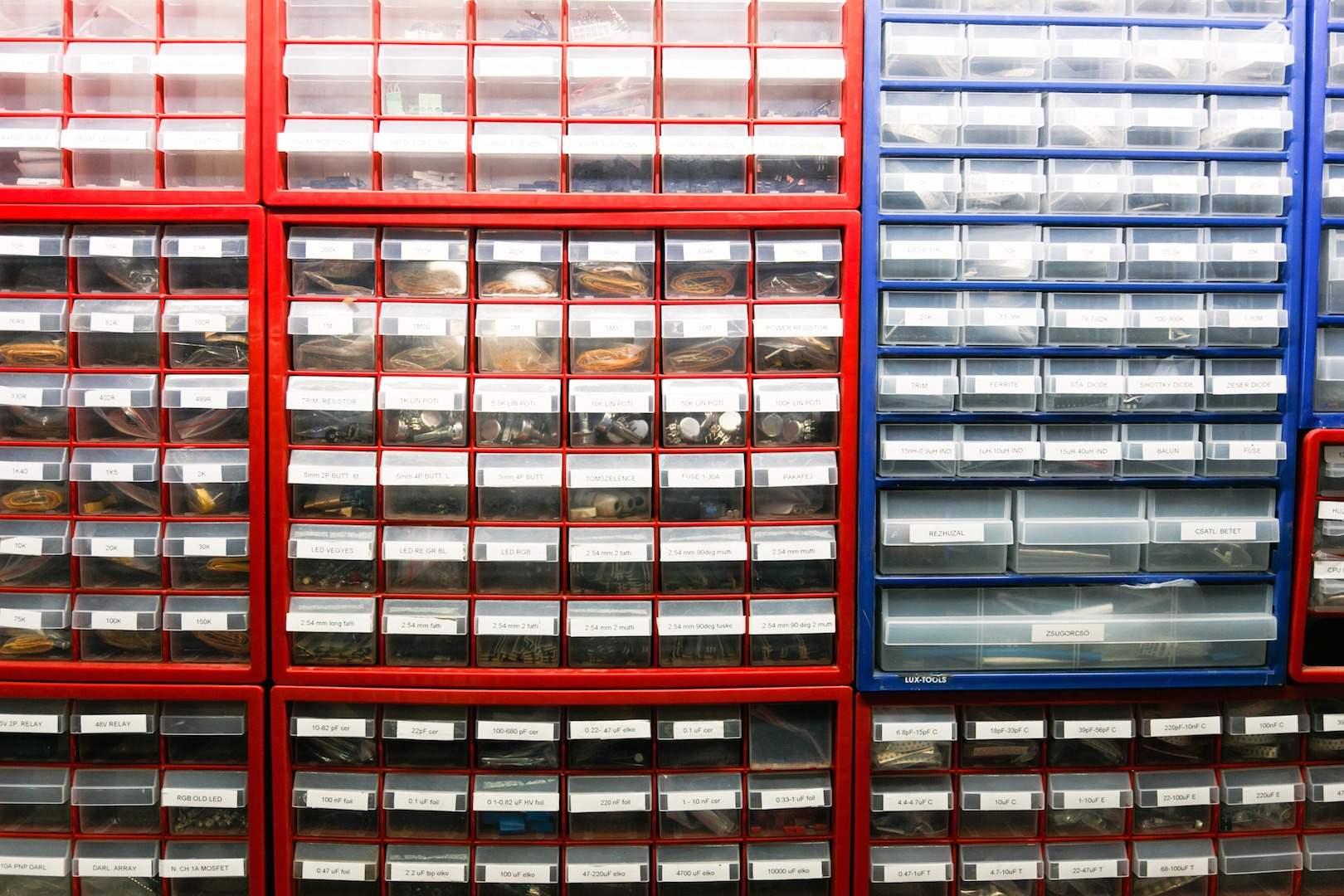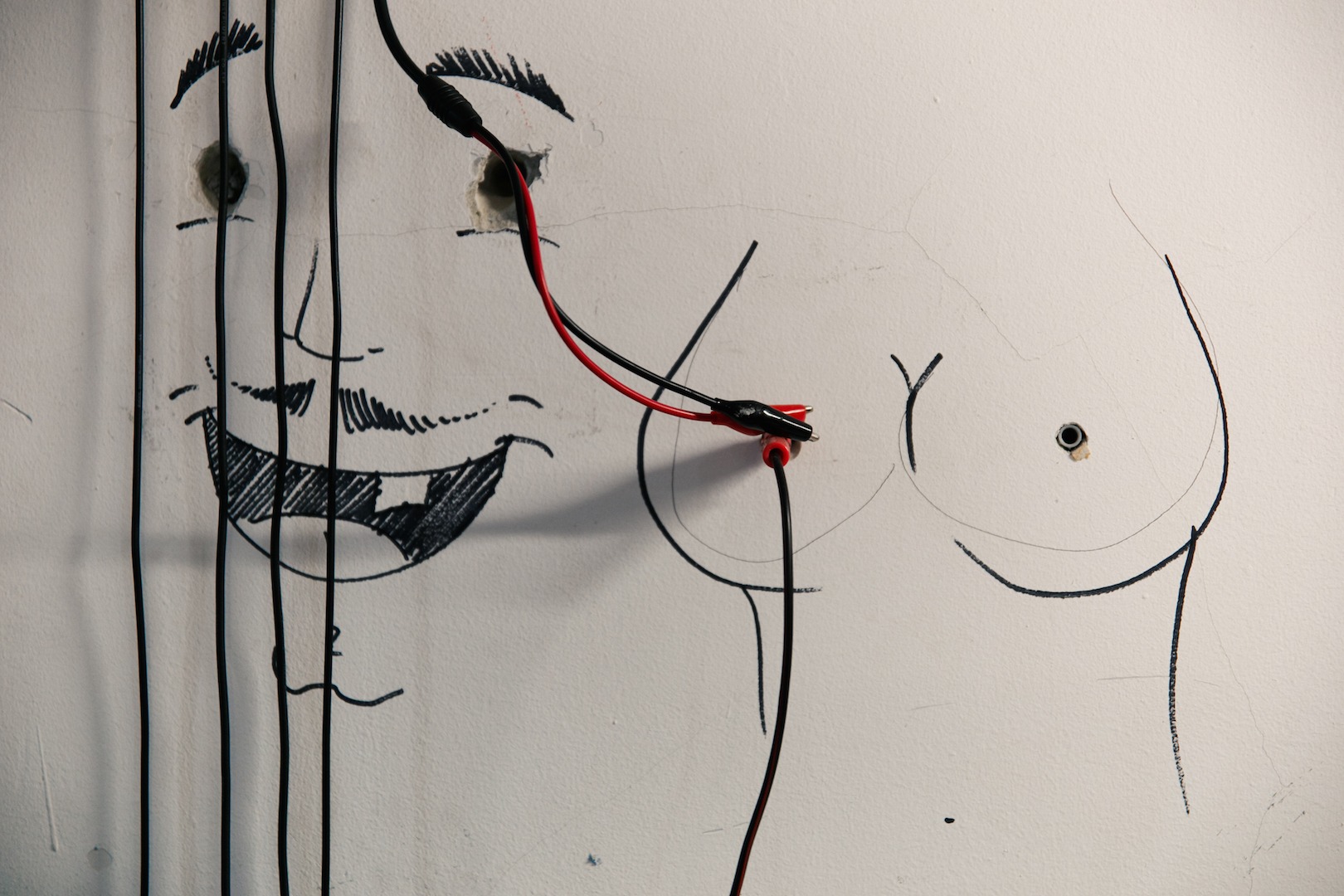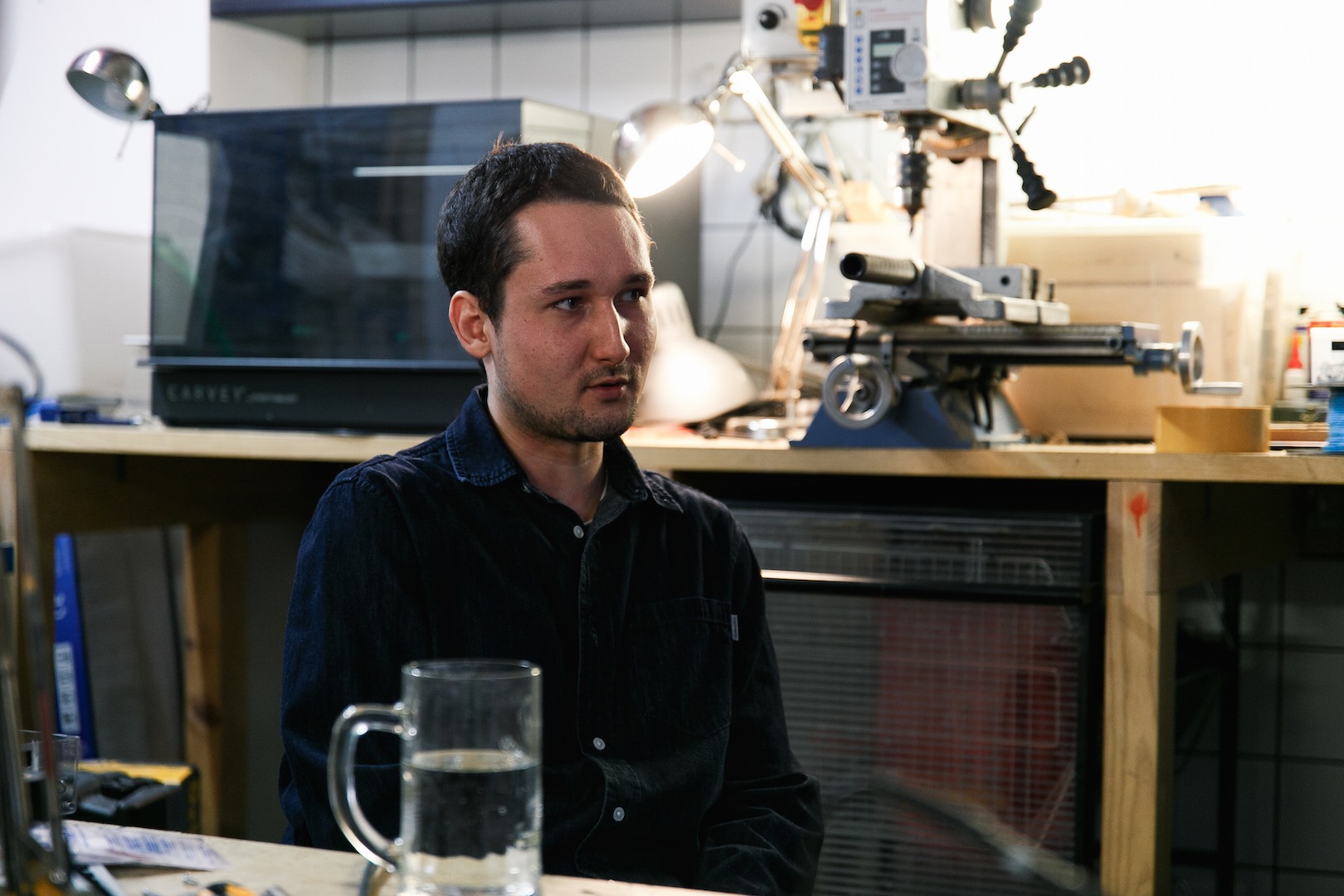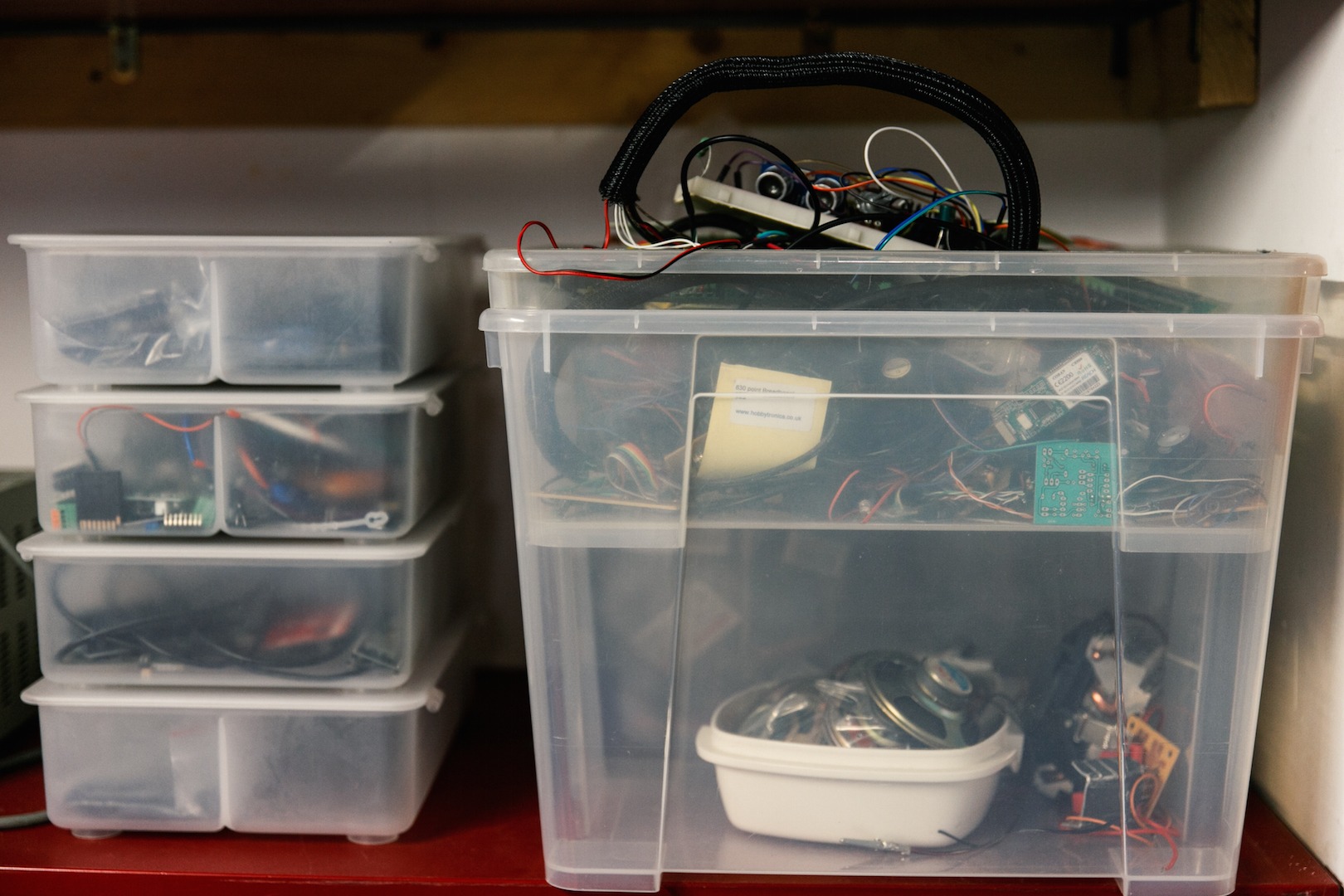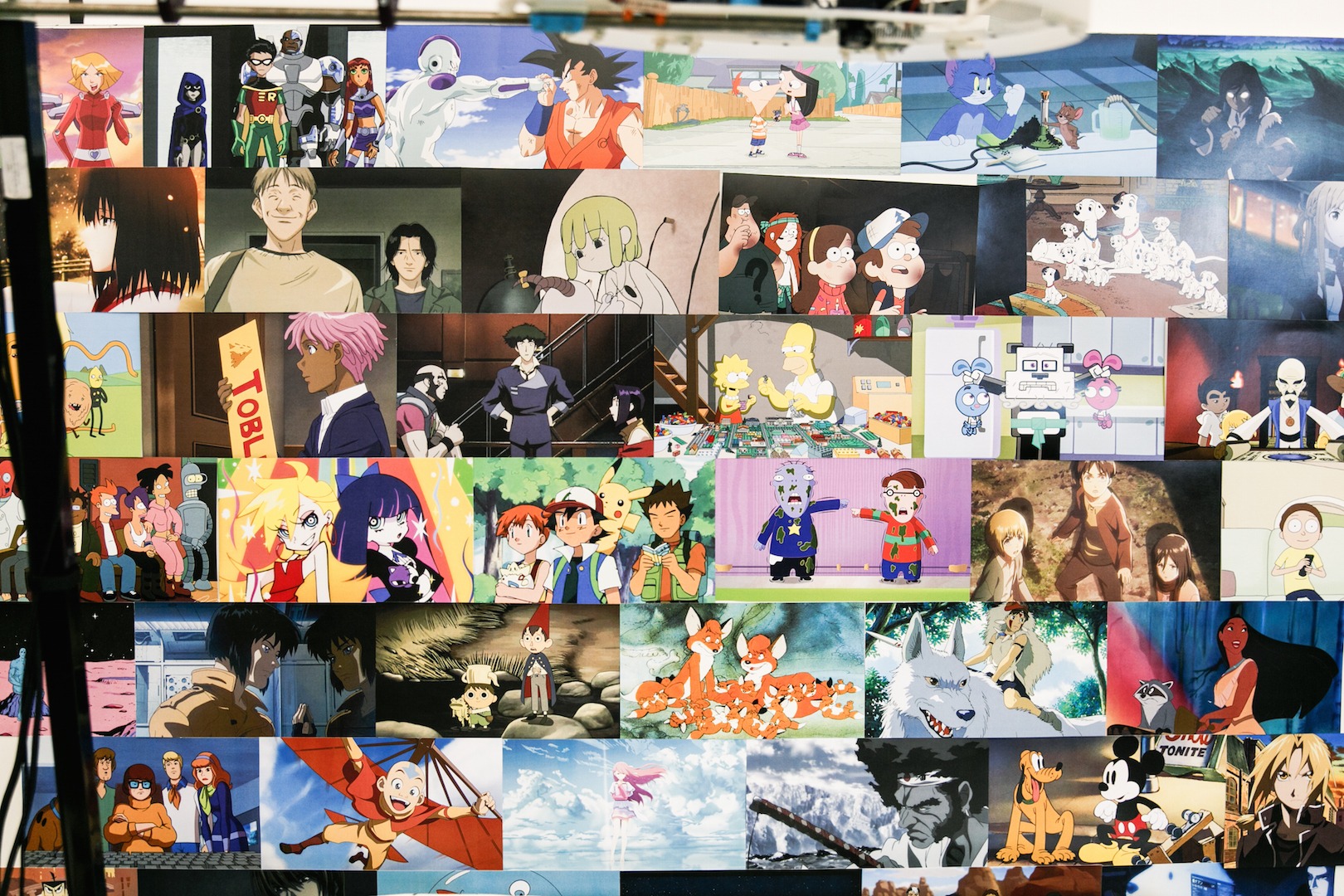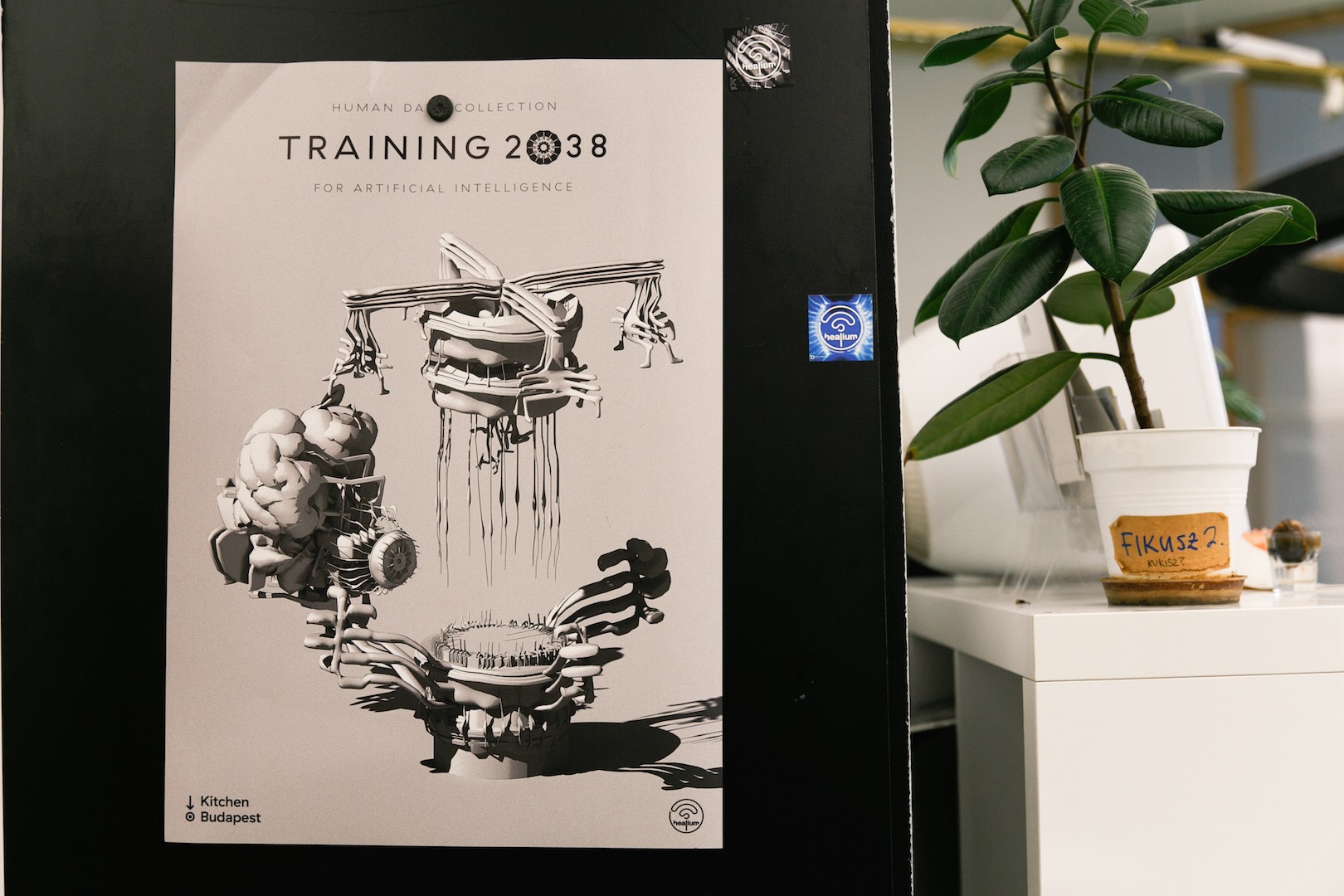Art & Tech Days designer & speaker Filip Ruisl on artificial intelligence
The upcoming Art & Tech Days festival is about to bring fresh air for technological advances in relation to art. Invited speakers will focus on the topic of artificial intelligence (AI) at the Art & Tech Conference. Controversial discussions often lead to suggestions that AI might one day achieve such a level of self-identity that it may create its own artwork. On the occasion of the upcoming festival, we met Filip Ruisl, a young designer from Bratislava, who for some time has based himself in the innovation lab Kitchen Budapest. We asked him what we were most concerned about AI. You are more than invited for Art & Tech Days. You can’t miss it. It would be a shame.
During the festival, you will talk about the VR/AI installation from Kitchen Budapest, Training 2038. What preceded its design?
An innovation laboratory KiBu (Kitchen Budapest) decided to create an artificial intelligence project – Training 2038 on the occasion of the 10th anniversary of its foundation. It went on a tour with us in Budapest for various presentations, such as at Telekom’s headquarters or Aquarium. People could come and try our project on their own.
What exactly is the project about and what were you hoping to achieve with it?
First of all, we wanted to launch some sort of social dialogue. Artificial intelligence has been a universally discussed topic for a long time now. We aimed to highlight the importance of the theme itself for the people. Technically, when someone puts the virtual reality headset he/she occurs in a biomorphic space and starts an interview with the entity (AI chatbot) on one of the default categories. These are self-guiding vehicles, intimacy – robot/partner, artificial intelligence supervision, media – social media, fake news, election meddling, warfare, human vs. artificial intelligence – transhumanism, biohacking. This robot asks the participant to comment on something that basically does not have the right answer. It indicates a certain ethical dilemma.
Why did you decide to focus on these topics?
Our goal was to show that we want from AI something that we do not know ourselves. According to us, w
This is an entirely anonymous matter. We do not have any identifiers that would allow to trace these people back as well as their answers. Our goal is to find out if there is any pattern in human responses. Although it is reflected within a smaller sample of respondents, it still causes a strong debate. It works like a conversation starter.
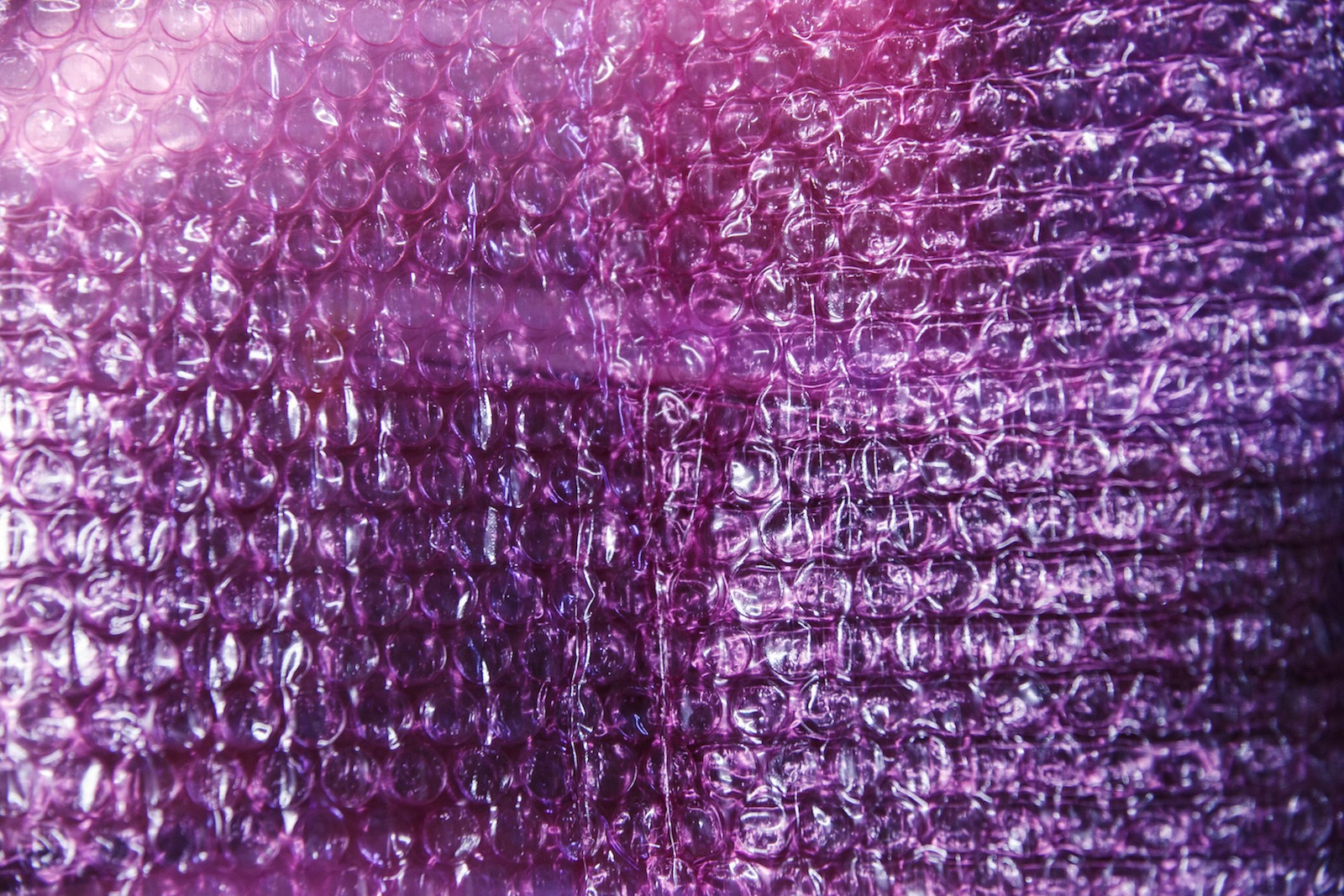
How do you want to present the Training 2038 project to the audience of our Art & Tech Days festival taking place this November?
I am going to focus my speech on the mentioned moral context/moral dilemmas we are dealing with in Training 2038. As a designer, I think it is a new paradigm of design as such. Designers, as well as other professions, are increasingly engaged in the impact of modern solutions and innovations. An unbelievable amount of technology and social media is crammed with various algorithms and artificial intelligence, and we do not even realize that our decision is sometimes influenced by the preference of this subject. At Art & Tech Days, I will talk mostly about how designers and technologists need to keep the ethical codification in their mind and, thereby, affect its long-term impact.
Do you know where the limit of ethics is?
That’s very challenging to define. However, there is this sociological phenomenon – law of unintended consequence which arises with every new discovery and technology. Despite an initially good intention, by gradually adapting the product into use by a society, its purpose may shift to a negative one. We can’t change many things, but with our approach, we as designers, technologists or programmers can influence the subsequent adaptation as such.
Let’s do a classic question for a designer – what is the future of AI according to you?
This is a very difficult question and I do not know if I have the answer. Different opinions and discussions arise when one contemplates whether artificial intelligence may succeed mankind and whether it can make decisions itself. Maybe it’ll happen, but current models are only used for some sort of function such as image recognition or comparison of differences. This means processing information in huge data sets for which people don’t have the full capacity because they tend to make mistakes. I think that AI should always have an expert who supervises and corrects its activity above it. It could control a person perhaps only at a moment if it was improperly designed. But I hope for the opposite. That’s exactly the reason why I want to emphasize the designers’ input at the festival so as to determine the eventual results and outcomes.
Who do you look forward at Art & Tech?
I am really excited to listen to the main speaker Gene Kogan from the United States who’ll talk about generative systems and will introduce the world-famous workshop Machine Learning for Artists. However, I am looking forward to many other speakers as I’ve checked the description listed on the web.
What kind of people do you think are
First of all, I think these are curious minds. People who think outside the box and perceive different connections with other spheres. This is perhaps that artistic facet of the festival – artists find new technologies as a medium by which they can deliver new experience other than traditional media. A good example is the new media territory. In my view, the subject of artificial intelligence is something that everyone should be interested in – a question of the future. Curiosity can prepare us for the surprises that the next era may bring.
You have the opportunity to hear what Filip has got to say during Art & Tech Days 2018.

